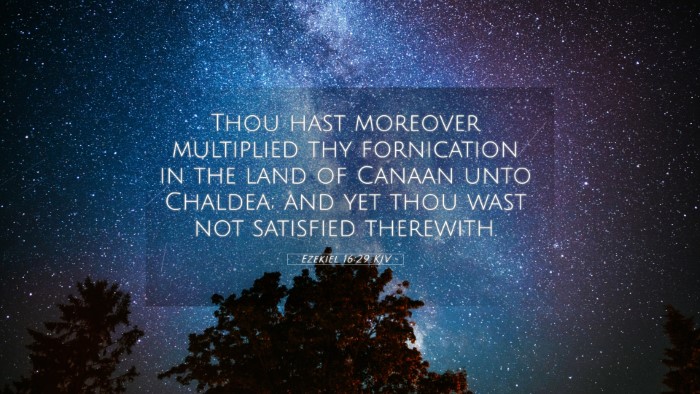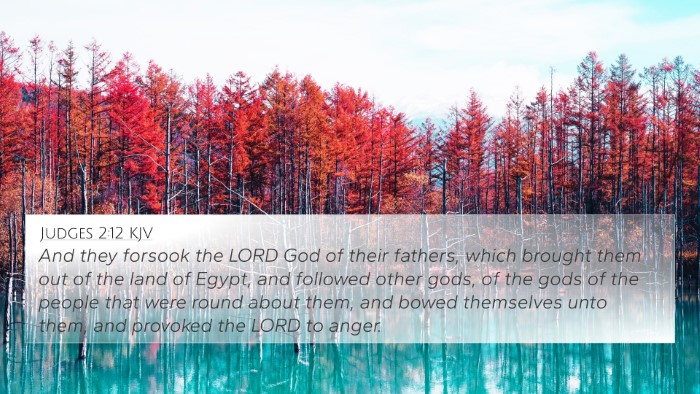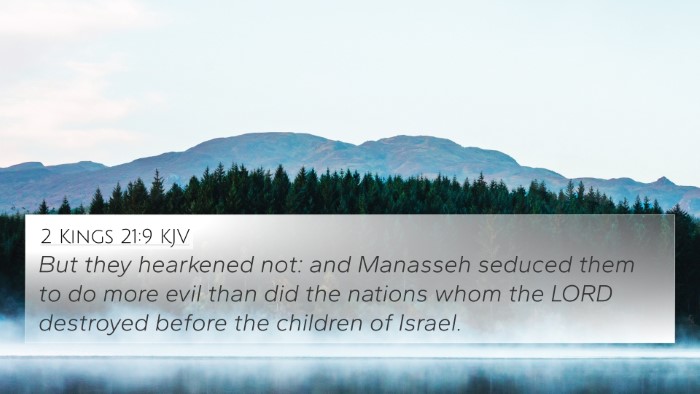Ezekiel 16:29 - Overview and Interpretations
Bible Verse: Ezekiel 16:29 states, "Thou hast multiplied thy whoredoms in the land of Canaan unto the Chaldea; and yet thou wast not satisfied therewith."
This verse encapsulates a profound message regarding Israel's unfaithfulness and the consequences of turning away from God. The pure and cherished status that God had bestowed upon His people is illustrated through the metaphor of marriage, and their betrayal is likened to infidelity.
Commentary Insights
Scholars and commentators provide deep insights into the understanding of this verse. Below are combined viewpoints from various public domain commentaries:
-
Matthew Henry:
Henry emphasizes the spiritual whoredoms of Israel, hinting at their alliances with foreign nations and idolatry. The term "whoredoms" signifies a betrayal of fidelity not only to God but also in the call to remain a separate and holy people.
-
Albert Barnes:
Barnes points out that the nation of Israel sought satisfaction in relationships with other nations, turning to alliances with the Chaldeans which demonstrated their discontent with God’s providence. He warns that such choices lead to both temporal and spiritual dissatisfaction.
-
Adam Clarke:
Clarke interprets the mention of "land of Canaan" and "Chaldea" as illustrative of Israel's failure. He notes that instead of finding peace and satisfaction in following God's paths, Israel continually sought fulfillment in worldly pleasures and associations, demonstrating a cycle of rebellion and longing.
Thematic Analysis and Cross-References
The verse can be linked to several themes that run throughout scripture, emphasizing God's faithfulness contrasted with human unfaithfulness. Below, we explore some inter-Biblical connections:
- Jeremiah 2:20: "For of old time I have broken thy yoke, and burst thy bands; and thou saidst, I will not transgress." This verse resonates with the theme of Israel’s rebellion against God’s kindness.
- Hosea 1:2: The prophet Hosea’s marriage to an unfaithful wife serves as an analogy for God’s relationship with Israel and their infidelity.
- Isaiah 1:21: "How is the faithful city become an harlot!" This verse parallels the accusations of spiritual adultery prevalent throughout Ezekiel.
- Ezekiel 23:5-6: Further explores Israel (symbolized by two sisters) engaging in promiscuity with nations, reinforcing the idea of betrayal through alliances.
- Revelation 18:3: Discusses the fornication of nations with Babylon, illustrating a prophetic culmination of these themes of idolatry and betrayal.
- James 4:4: New Testament reference reminding believers that friendship with the world is enmity with God, echoing the themes present in Ezekiel.
- Matthew 5:13: Where Jesus cautions that salt can lose its flavor, much like Israel's loss of distinctiveness when they turn to other nations.
Understanding Connections and Cross-References
As we delve into Ezekiel 16:29, its connections reveal a broader narrative within the scriptures that warns against seeking satisfaction outside God. Here are some tools and methods for deeper exploration:
- Tools for Bible Cross-Referencing: Utilize a comprehensive Bible Concordance to trace themes, words, and meanings across scripture.
- Cross-referencing Bible Study: Engage in studies that compare occurrences of significant terms such as "whoredoms" and "faithfulness" across different scriptures.
- Identifying Connections: Explore the dynamics between prophetic books and their fulfillment in the New Testament.
- Detailed Cross-References: Analyze parallel accounts, particularly the prophetic books, for narrative and thematic similarities.
The Importance of Cross-Referencing Biblical Texts
Understanding Ezekiel 16:29 within the context of the whole Bible brings clarity to God’s heart towards His people and highlights the consequences of turning away from Him. Cross-referencing these themes not only enriches one’s personal study but also fosters a deeper relationship with the divine.
For anyone studying the Bible or seeking to deepen their understanding of specific verses, employing these cross-referencing techniques can illuminate the interconnectedness of God’s message throughout history.
Conclusion
In summary, Ezekiel 16:29 serves as a poignant reminder of the dangers of spiritual unfaithfulness and the ultimate satisfaction that comes from a devoted relationship with God. By utilizing Bible cross-reference guides and engaging in comprehensive studies, one can uncover the rich tapestry of scripture that addresses themes of fidelity, dissatisfaction, and divine love.






